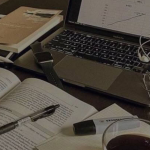Today, we’re diving into a topic that doesn’t get nearly enough love: breaks.
If you’re here, chances are you’re feeling overwhelmed. Maybe you’ve been grinding away at work, juggling family responsibilities, or trying to meet a million deadlines with no time to breathe. I get it—when life feels like a never-ending cycle of spinning plates, the idea of taking a break can feel impossible. But here’s the thing: breaks aren’t a luxury—they’re a necessity.
When we don’t take breaks, we run ourselves into the ground. We lose focus, creativity, and energy. And let’s be real—when you’re running on fumes, even the things that should bring you joy (like playing hard) start to feel like just another chore on your to-do list. So today, let’s talk about why breaks matter and how they can actually make you more productive, focused, and happy.
Why Breaks Matter: The Science of Rest
Breaks aren’t just about stepping away from work—they’re about giving your brain and body the chance to reset. Here’s what science has to say about why breaks are so important:
1. Breaks Reduce Stress
When you’re constantly in “go mode,” your stress levels skyrocket. Taking short breaks throughout the day can lower cortisol (the stress hormone) and help you feel calmer and more in control. According to BioSpace, regular breaks can prevent burnout and improve overall mental health.
2. Breaks Improve Focus
Ever stare at your computer screen for hours only to realize you’ve accomplished nothing? That’s your brain begging for a break. Studies show that stepping away for even a few minutes can help you refocus and come back sharper than before. It’s like hitting the reset button on your brain (PubMed).
3. Breaks Boost Creativity
Some of the best ideas come when you’re not actively thinking about work—like in the shower or during a walk. Breaks give your brain the space it needs to connect ideas and solve problems creatively. As highlighted by Harvard Business Review, downtime is essential for innovative thinking.
Types of Breaks That Actually Work
Not all breaks are created equal. Here are a few types of breaks that can help you recharge:
1. Micro-Breaks
These are short breaks (1–5 minutes) where you step away from your task to stretch, grab water, or simply breathe. They’re perfect for maintaining energy throughout the day without disrupting your workflow (NCBI Study).
2. Relaxing Breaks
Take 10–15 minutes to do something calming, like meditating, listening to music, or reading a book. Relaxing breaks are great for resetting your mood and reducing stress.
3. Social Breaks
Chatting with a friend or coworker during a break can boost your mood and remind you that you’re not alone in this crazy world. Connection is powerful—it’s like a mini mental recharge.
4. Active Breaks
Move your body! Whether it’s a quick walk around the block or some light stretching at your desk, physical activity during breaks can boost energy levels and improve focus.
How to Take Effective Breaks Without Feeling Guilty
Let’s be honest—taking breaks can feel indulgent when there’s so much to do. But remember this: taking care of yourself isn’t lazy; it’s smart. Here are some tips for making breaks work for you:
- Schedule Your Breaks: Set reminders to take breaks throughout the day—whether it’s every hour or after completing a big task.
- Choose Activities You Love: Make your breaks something you look forward to! Whether it’s sipping coffee on your porch, doodling in a notebook, or playing with your dog, choose activities that genuinely recharge you.
- Listen to Your Body: Pay attention to when you’re feeling drained or distracted—that’s your cue to take a break.
- Keep It Simple: Breaks don’t have to be elaborate or time-consuming—a few deep breaths or a quick stretch can do wonders for your focus and energy.
Breaking Free from “Squeaky Wheel Mode”
When life gets chaotic, it’s easy to fall into what I call “Squeaky Wheel Mode,” where the loudest tasks get all your attention—even if they’re not the most important ones. Taking intentional breaks helps you step back and regain perspective so you can prioritize what really matters.
And here’s the kicker: when you rest hard during your workday, you’ll have more energy left over for playing hard later on! It’s all about balance—working smart so you have time (and energy) for joy.
Final Thoughts: Rest Is Productive
If there’s one thing I want you to take away from this article, it’s this: rest isn’t the enemy of productivity—it’s its secret weapon. Taking breaks doesn’t mean slacking off; it means giving yourself the tools to show up as your best self in both work and play.
So go ahead—schedule that walk around the block or take five minutes to sip coffee without checking emails. You deserve it! And when life feels overwhelming? Remember that even when survival mode kicks in—or when life feels like one shoe and one boot—you’ve got the power to rest hard and recharge.
ShaBoot!



